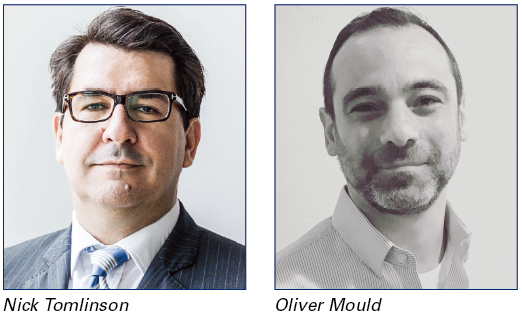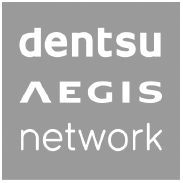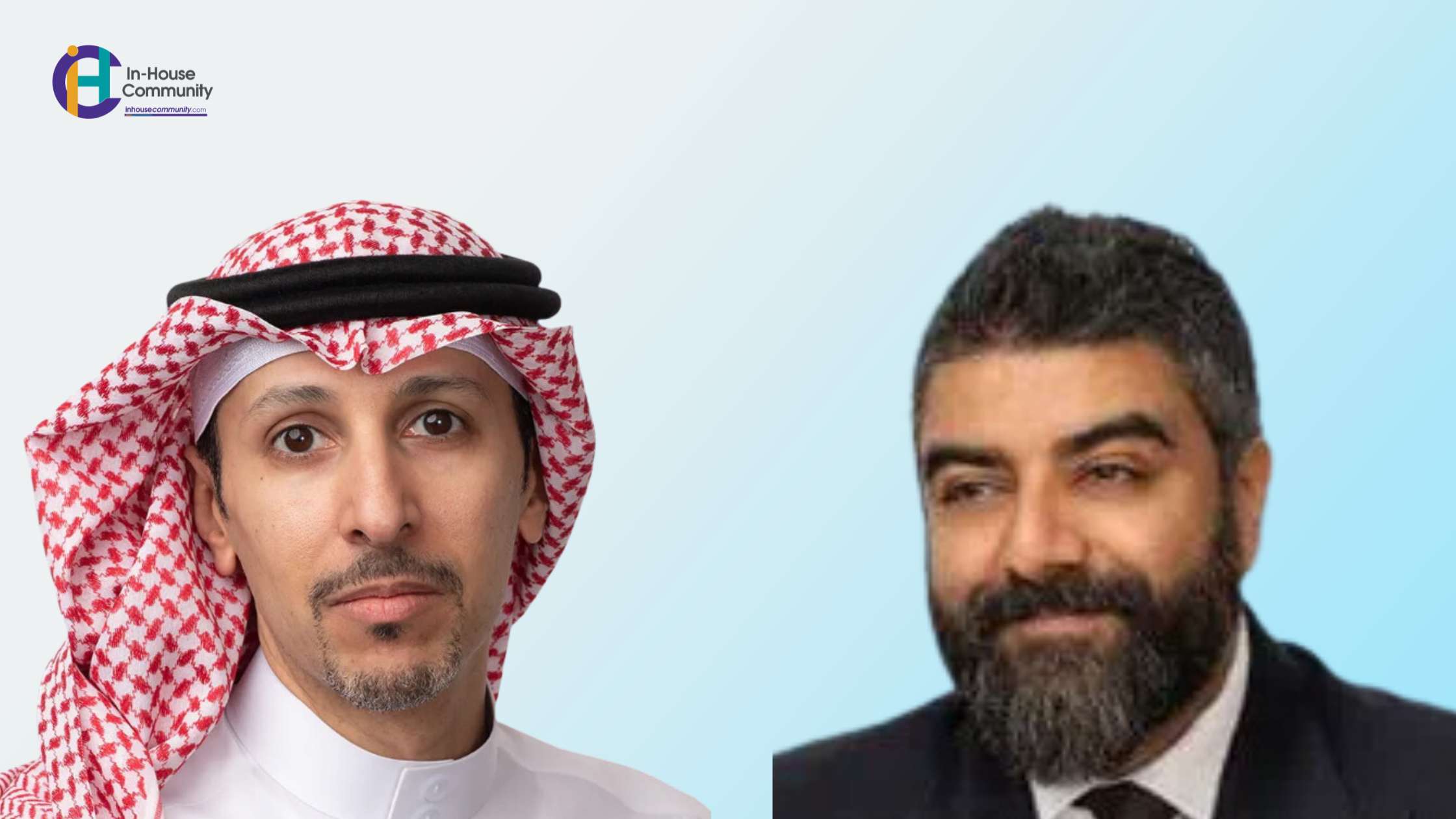
 By Oliver Mould of Lawyers On Demand and Nick Tomlinson of Dentsu Aegis Network
By Oliver Mould of Lawyers On Demand and Nick Tomlinson of Dentsu Aegis Network
Oliver Mould, head of Asia for Lawyers On Demand, speaks with Nick Tomlinson about his background, career, current role as general counsel for Asia Pacific at Dentsu Aegis Network and the importance of deal management.
Tell us a bit about your background and your current remit as general counsel, Asia Pacific, at Dentsu Aegis Network?
I began my legal career in New Zealand with the law firm Bell Gully, in the litigation department, working primarily on competition matters and associated regulatory issues with market access, particularly in the telecoms and energy markets. I made a natural progression into an in-house role at Vodafone. I left New Zealand in 1997, spent some time in Canada, then relocated to Hong Kong in 1998. I joined Hong Kong Telecom and was with that telecoms group under various ownership for 10 years.
In 2008, I took some time out, when I was entertaining an alternative career in the restaurant business and trained at Le Cordon Bleu in Paris. Following the global financial crisis in 2008, I decided to join Aegis Group in 2009 and I’ve been here ever since. In 2013, Dentsu acquired Aegis and formed DAN, which is now the fourth largest advertising group in the world.
At DAN, I started as Asia-Pacific legal counsel in Hong Kong in February 2009 before relocating to Singapore in 2010, and now I work as the general counsel for Asia Pacific (excluding Japan), running a team of about 35 lawyers and compliance professionals. This team is managed through senior lawyers with seven direct reports into me. My current remit is primarily focused on five main areas: commercial and client work, data and privacy, mergers and acquisitions, compliance and management.
How involved are you in transactions, and the broader strategies associated with them?
Since 2009, I have been involved, at some level, with every acquisition made by DAN in Asia Pacific. We tend to average between eight and 12 acquisitions a year, so we have plenty of experience in managing deals. Many of these acquisitions are bolt-on acquisitions of private companies, but we do also complete a few larger strategic public company acquisitions, for example the acquisition of the Mitchell Communications Group in Australia in 2010. I was also heavily involved with the integration of Aegis and Dentsu.
In terms of how we operate during the M&A process, I work very closely with our M&A director and the C-suite in Asia Pacific. Additionally, we work closely with the group M&A team and the group strategy team in London, with all of our transactions required to be approved by the M&A Committee of the DAN Board. This requires a thorough level of preparation and understanding of the target business.
Given the demands of M&A transactions, we manage them centrally from regional headquarters in Singapore and thus we need to ensure that we resource our legal function properly for our various deals. I rely on Will Finn, a very capable senior corporate counsel, and we also have other more junior counsel. We also like to flexibly resource our teams to support an acquisition. We use LOD as it provides us the resource we need, coupled with great billing flexibility, so we can allocate costs to particular deals. Then of course we have preferred counsel we use — our panel. We’ve actually just gone through an RFP [request for proposals] process and we’ve nominated new law firms to our panel focused on M&A for Asia Pacific. This was a very beneficial process for us to do.
Did anything surprise you going through the RFP process?
It was quite a surprising process, in a good way. At a broad level, we learned three things. First, incumbency can lead to complacency and this really showed during the pitching. Given we’re an advertising business, pitching is part of our blood, so we are very aware of what works and what doesn’t in a pitch. Secondly, we are starting to see a whole raft of new technologies and structures emerge in the legal services market. Thirdly, we saw surprising levels of competitive pricing — both overall and in charging structures, where we have seen a shift away from pure hourly billing to charging structures based on tasks and outcomes.
How significant a part does project management play in respect of deal activity?
Project management is a very important part of getting deals done — I don’t think anyone would argue that point, especially when you have multiple continuing transactions at various stages. For us, this management is normally led by our M&A function. All of the people in that team are ex-Big Four and have significant deal experience. Further, our panel law firms have established project management capabilities in their offering — this is part of the reason we were attracted to them.
Our in-house legal team doesn’t have project management disciplinarians in the traditional sense. We have lawyers with deal experience but no dedicated project management function as part of the legal team. The legal team isn’t involved from the very beginning of a deal — we are typically involved once pricing has been agreed and the letter of intent needs to be drafted and negotiated. At that point we work with our internal M&A team and our panel firms through due diligence, negotiation and execution to project manage transactions. We are also involved in all facets of legal and compliance integration.
One area of increasing focus for us is a robust integration process, and to that end we are involving our local GCs much earlier on in transactions prior to reaching completion. We are finding this provides a much smoother process generally, but particularly in relation to integration.
I believe that M&A is a specialist discipline that requires a level of experience, but also the right touch. This is something we value in terms of how we view potential M&A hires. But we don’t look for the same touch in roles around the region more focused on general commercial work. Ensuring successful collaboration among specialists and generalists is a continuing management challenge where I feel some pride in the progress we have made over the past couple of years. Successful transition from a new target to a fully integrated business-as-usual operation contributing to our sustainable profit growth is the holy grail of our M&A approach and the legal team has a huge part to play in this process.
What are the personal principles you adopt to ensure successful project management?
Focusing on M&A, the overriding principle we adopt is the active management of deal pipelines and process. We don’t like to sit back and wait for someone to get back to us. We continually push the momentum to maintain flow. I believe that good M&A requires momentum and if you lose it, you lose energy and doubts can begin to emerge. Saying that, we’re alive to the fact that too much momentum can give rise to “deal fever” — causing people to lose sight of important issues. For example, once through the due diligence process, a target might not be as attractive. To keep the balance between momentum and thoughtfulness, we build in pause-points to re-evaluate the deal. This is incredibly important.
How important do you feel collaboration is, both internal and external, to ensure a transaction is completed successfully?
Collaboration is crucial in all respects. We need to collaborate with targets and advisers. We also really need advisers to collaborate with each other. Something I find very frustrating is when bankers, accountants and lawyers get testy with each other — it’s unproductive. Moreover, legal advisers who are very adversarial can lose sight of what the client wants to achieve. We look for counsel who are collaborative, insightful and efficient. This helps us achieve our desired outcomes free of personal prejudices — not something that is always easy to achieve.
Something I’ve learned over my legal career and particularly at DAN is that different markets have very different legal and deal styles. And it’s quite an art form for us to manage and understand the different styles.
For most significant negotiations, I or my senior corporate counsel will attend. Then, if the meeting is starting to go off-piste or get overly heated, we can step in and reorient discussions. I see my job as very much managing the room. Over time, you build relationships with trusted advisers such that you can trust them to do a good job of advocacy without resorting to dogmatism. We’re not interested in working with big egos.
To what extent do you take an innovative approach towards resourcing for transactions? Are there any specific methods and structuring arrangements you are more frequently using?
In terms of structuring arrangements, our deals normally involve entrepreneur-founded, private advertising and marketing businesses. Most of those deals rely on some sort of earn-out arrangement. While there will be an upfront payment, there is then normally performance-based earnings over several years. We are not in the business of stepping into asset-heavy companies and getting rid of management. We are in the business of building sustainable growth through growing our client base and our capability pool, and deferred consideration is part of aligning incentives in this direction. It is therefore important to maintain very good relationships throughout the transaction deal process. We have emphasised thoughtful integration engaging the target principals as crucial to transaction success.
In respect of innovative approaches to resources, I don’t think that we are on the bleeding edge of the innovation curve. However, our use and deployment of LOD is a great example of a new and better approach to managing the cyclical nature of deal work. It allows us to flex resource up and down depending on need and further allows us to charge that cost to a specific transaction.
As a general counsel, what are the more exciting developments you are seeing from your service providers?
Generally, the whole arena of alternative legal provision is an exciting one. Combining lower cost services, better charging structures and the smart use of technology is very compelling. From my GC perspective, I’m interested in the changes and trends across the board — from innovating traditional law firms and new alternative legal providers to technology-based solutions. Recently, we’ve been piloting artificial intelligence-based contract review and I believe that curated AI will be a likely resource solution in the near future, although early ambitions have been tempered by the reality of current technology. I’m also excited by the move away from traditional hourly billing towards tasked-based billing. Firms adopting a mixture of alternative legal service provision, technology and insight are the most interesting.

W: www.dentsuaegisnetwork.com
E: nick.tomlinson@dentsuaegis.com













 LOD (Lawyers On Demand)
LOD (Lawyers On Demand) Oliver Mould
Oliver Mould




